Program Description
The annual Outstanding Student Researcher Award was created in 2013 in connection with the annual “Meeting of the Minds” Student Research Symposium. The award is designed to acknowledge one graduate and undergraduate student who has demonstrated exemplary scholastic work in both their academics and research within any field.
The Outstanding Student Researcher for graduate and undergraduate scholars are selected based on their research or creative activities (e.g., paper, equivalent presentation, exhibit, etc.), letter of recommendation, academic achievement, and participation in extracurricular activities. Awardees will receive a recognition certification award and will present their research during the OSRI Recognition Reception on TBA.
Award Details
The Outstanding Student Researcher Awardees are selected based on their research or creative activities (e.g., paper, equivalent presentation, exhibit, etc.), letter of recommendation, academic achievement, and participation in extracurricular activities. The awardees will be announced during the opening ceremony of the "Meeting of the Minds" Student Research Symposium on TBA. Students are not permitted to self-nominate and must request support from their faculty mentor.
Eligibility
1. The student must have been enrolled as a student during the academic year of their nomination.
2. The research or creative activities must be conducted by the student.
3. The student must have a GPA of a 3.5 or higher
4. The student must have participated in extracurricular activities outside of the classroom.
5. The student must be nominated by a faculty member.
Submission Guidelines
The following submission guidelines should be followed:
NOMINATIONS:
Submission of nominations must be online through InfoReady and must be submitted no later than 11:59pm on the deadline date. Nominations are due by March 3rd, 2026.
The nominator should expect to address the following questions:
- How long have you known the nominee and in what capacity?
- What has the student accomplished within the area of research and creative activities?
- What is the student’s short and long-term academic/career goals?
- Describe the student’s involvement in extracurricular activities on campus or within the community.
- Tell us why you believe your mentee deserves this award over other candidates.
NOMINEE DOCUMENTATION:
Following nominations, the OSRI will contact the nominees to solicit the following supporting materials in order to be considered for the Outstanding Undergraduate Student Research or Creative Activities Award:
- A statement of purpose (not to exceed 2 pages) outlining the nominee’s goals, research or creative interests, and their academic achievements
- A resume/curriculum vitae
- A sample of their research or creative activities (e.g., a research paper, publication, poster, photographs and description of performance or exhibit, etc.)
- All materials must be submitted online through InfoReady and must be submitted no later than 5:00 pm on the deadline date.
- Late or incomplete nominee packets will be evaluated at the discretion of the awards committee.
Outstanding Student Research or Creative Activities Award Guidelines
Award Obligations
All awardees agree to the following terms:
- Awardees are asked to attend the OSRI Recognition Recognition Reception on TBA.
Submit a Nomination Today!
Submission of nominations must be online through InfoReady and must be submitted no later than 11:59pm on March 3rd, 2026
- Application Opens: January 20th, 2026
- Deadline to submit an application is March 3rd, 2026
- Students are not permitted to self-nominate; student must be nominated by a faculty member.
2025 Outstanding Student Researcher Awardees

Logan Ashbaugh is a 1st-year graduate student at California State University San Bernardino, where he is pursuing an M.S. in Computer Science. He has participated and contributed to research involving sentiment analysis with machine learning, in collaboration with professors at the university. In his studies, Logan focuses on discovering patterns in data with both data analysis and machine learning, while also learning about game development and methodologies. His interest in Computer Science comes from a desire to push the boundaries of machine learning to discover new things about the world that would be difficult to see as a human. Logan works as a programmer at the xREAL lab at CSUSB, contributing to projects designed to aid both professors and students in the classroom.
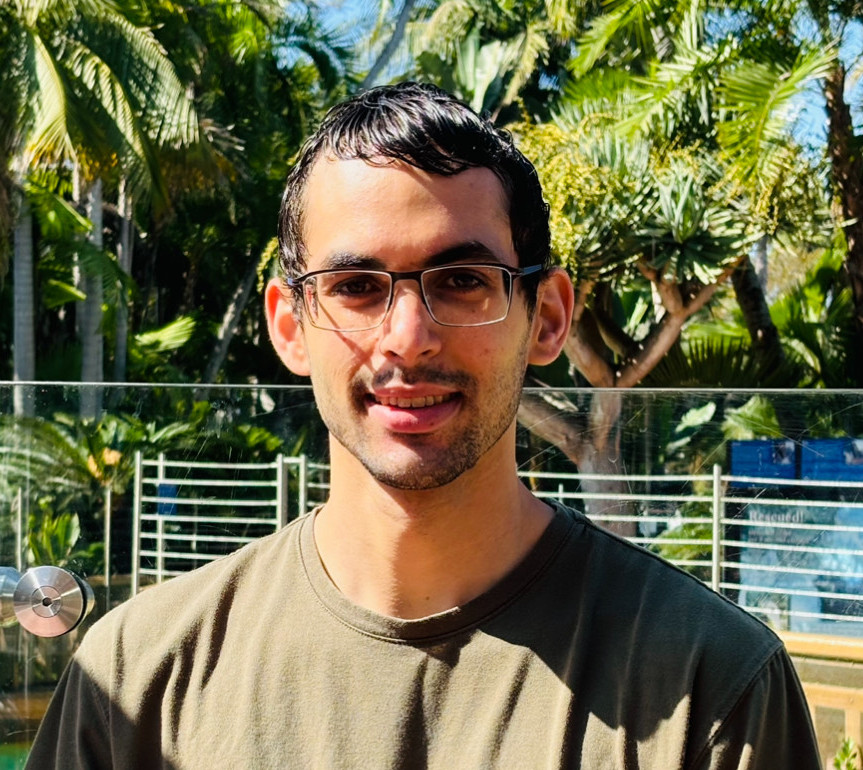
Calvin Glisson is a third-year Master’s in Computer Science student at California State University, San Bernardino. He has published research in computer vision at the top-tier IEEE/CVF Winter Conference on Applications of Computer Vision (WACV), and is a winner of the 39th Annual CSUSB Student Research Competition. In his work, he has developed novel methods for improving perception neural networks used by autonomous vehicles, leveraging the underutilized frequency domain to make more robust neural network systems. This work has the potential to make self-driving car systems more efficient and safe for both the passengers and other vehicles on the road. Calvin has also worked extensively as a teaching assistant, helping teach courses on data science, computer science, and compilers.
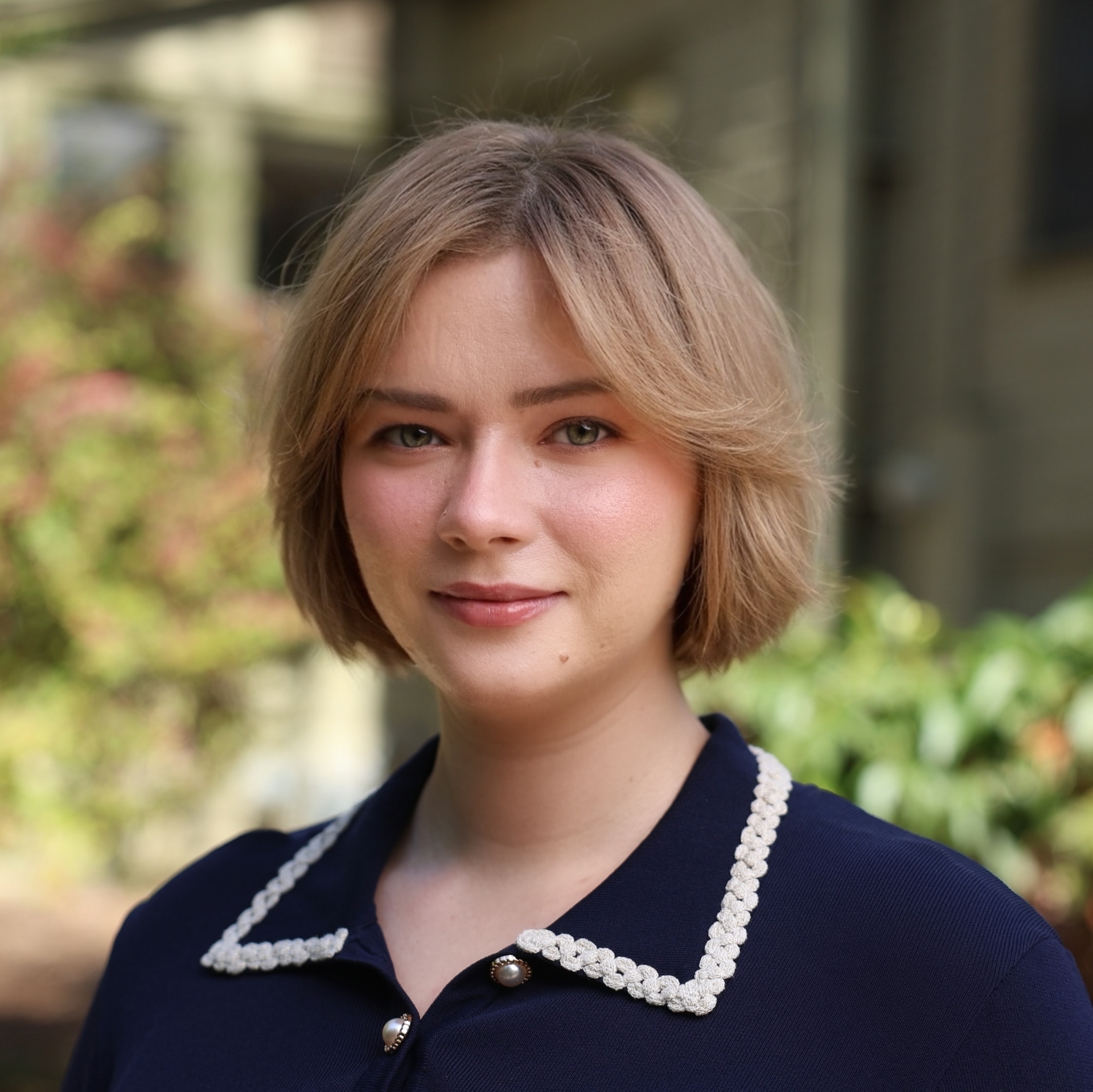
Rachel Kanter is a fourth-year psychology student at California State University, San Bernardino (CSUSB). Through her professional experience and academic tenure, she has observed the challenges faced by communities impacted by intergenerational poverty and trauma, as well as the profound psychological ramifications of interpersonal violence. Motivated by these experiences, her research examines the psychological traits, belief systems, and situational contexts that contribute to moral injury, particularly among survivors of intimate partner and childhood sexual abuse. She has presented her research at numerous academic conferences and published articles in the Journal of Interpersonal Violence and the Journal of Religion and Health. Rachel has conducted multiple independent research projects under the mentorship of Dr. Christina Hassija and Dr. Brittany Bloodhart, designing and implementing studies on moral injury and predictors of empathy. Additionally, She co-founded the Women’s Advocacy & Violence Education (WAVE) Lab at Crafton Hills College alongside Dr. Diane Pfahler, was selected for an internship at the Human Flourishing Program at Harvard University, where she has already contributed to a psychometric validation study, and was recently invited to present her research online at the International Centre for Moral Injury. Her academic excellence has been recognized through grants, scholarships, and awards such as the NIH T34 Undergraduate Research Training Initiative for Student Enhancement (URISE) award, the Raymond Pryke Memorial Honors Scholarship, a Student Research Grant, a first-place poster award at the Honors Transfer Council of California, and through winning the CSUSB Student Research Competition in the Undergraduate Behavioral and Social Sciences category. She plans to pursue a Ph.D. in Clinical Psychology and establish a research lab dedicated to understanding and mitigating moral injury.
2024 Outstanding Student Researcher Awardees
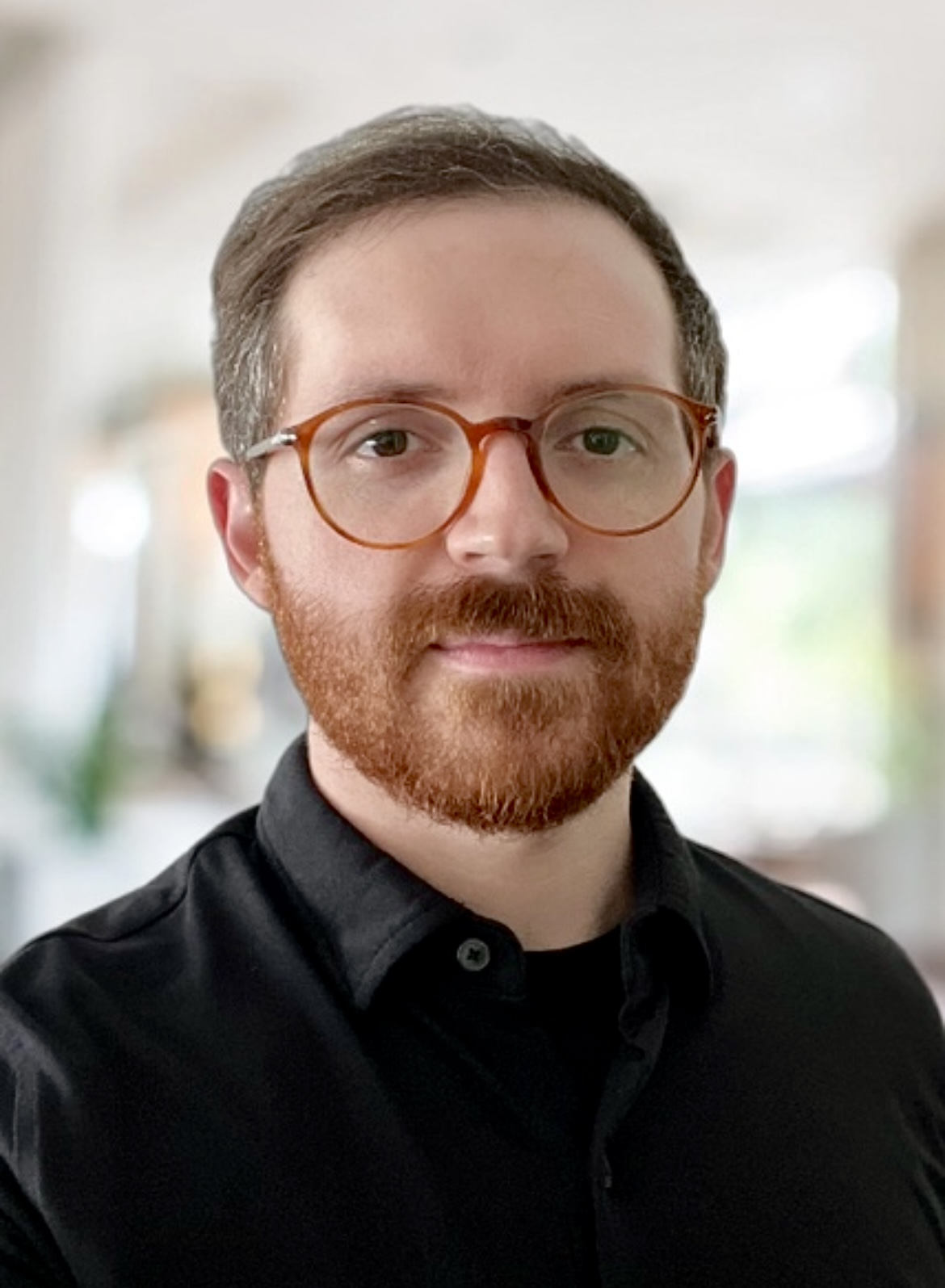
Alexander Dixon was born in Fullerton, California in 1994 and earned his BFA with a dual concentration in graphic design and glass from California State University, Fullerton, in 2020. During that time, he found a passion for glass and, since then, has been committed to challenging its conceptions and limitations. Even from a young age, he was always drawing, which eventually transitioned into graphic design in high school, and then into graphic design and glass in college. Although he primarily works with glass these days, he continues to work as a graphic designer in the field and even started his own small business named, Stellar Signworks, which focuses on design, branding, and signage. For him, design is always in his mind and the background of his artwork. He received multiple scholarships during his undergrad which allowed him to travel the country to take intensive workshops at renowned institutions, such as the Pilchuck Glass School, the Corning Museum of Glass, and Penland School of Craft. These incredible opportunities allowed him to meet and network with like-minded individuals from all over the globe, which only fueled his passions even more. He graduated with his MFA from California State University, San Bernardino, in December 2023, where he currently teaches Glass and Creative Technology for artists.
When he is not teaching, or making artwork, he travels and watches documentaries on various aspects of art and design for fun. He never stops looking for inspiration and working towards his goal of advancing in the field of art. He loves to travel and attend intensive workshops all around the country to develop his skills in glass-blowing and other glass-making techniques, learning from the top artists of our time. For him, glass is more than an art form; it’s a way of life. The way the material reacts to the human touch is unlike anything else and causes the maker to be fully present in the moment. Glass is a part of life that we interact with every day, but often it seeps into the background and becomes almost invisible; the same happens with design. Both art forms serve as inspiration to him, and he seeks to highlight the role of the graphic designer in our world today.
His current goal is to be an established and exhibiting artist at the most prominent and prestigious museums and galleries across the globe. He wants to continue to teach at universities, fostering the development of the next generation of artists. His extensive knowledge of design paired with his historical and contemporary knowledge of glass, sets him apart from other contemporary artists of our time. His artwork is a blend of optical illusional art, combined with digital technology, and historical glass techniques, melding the two-dimensional and three-dimensional realms together. Through immersive installations and interactive experiences, he seeks to redefine the bounds of visual art and continues to investigate how the role of graphic design and its relation to public perception and societal influence.
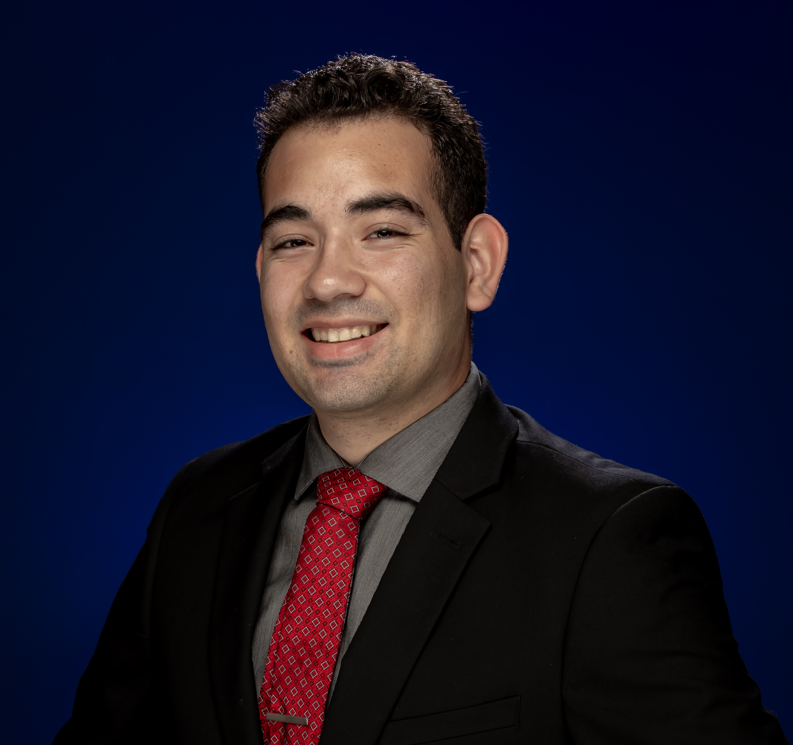
David Murillo is a graduating senior from the College of Natural Sciences majoring in Chemistry and minoring in Physics. Originally a transfer student from Victor Valley College, while at California State University San Bernardino (CSUSB), he has served as a senior research assistant with Prof. Renwu ‘John’ Zhang, as a learning assistant with Prof. David Maynard and Prof. Joyce Pham, and as President/Community Outreach Coordinator of the Society for the Advancement of Chicanos/Hispanics and Native Americans in STEM chapter at CSUSB. As a researcher, he plans to address issues of sustainability using polymer science in applications such as water pollution, energy storage, and nondegradable plastic waste. This was inspired by his work with Prof. Zhang from CSUSB on porous polymers for hydrogen storage and his with Prof. Jeremiah A. Johnson from MIT on solid polymer electrolytes. Both projects tackled the need for sustainable energy storage methods that were safer and more effective than current ones.
David is the recipient of multiple undergraduate scholarships such as the S-STEM, Ralph H. Petrucci, CNS Edison, California Pre-Doctoral Program, and Barry Goldwater scholarships and is a recipient of the National Consortium for Graduate Degrees for Minorities in Engineering and Science Fellowship. He plans to capitalize on these opportunities to continue building his capabilities as an educator, researcher, and community builder while in graduate school pursuing a Ph.D. in Chemistry. In the future, David plans to return to a primarily undergraduate institution as a faculty member to support underrepresented and disadvantaged students in STEM by making science education impactful and enjoyable, providing research opportunities for students, and building communities that provide a sense of belonging and connecting students to large networks.
2023 Outstanding Student Researcher Awardees
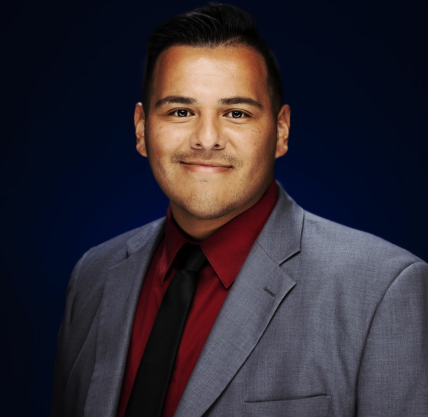
Alejandro Garcia, Graduate, Psychology
As I prepare to leave CSUSB and transition into my doctoral studies, I plan to investigate how social identities and mindsets such as state violence and historic exclusion influence prosocial behaviors in culturally diverse communities. My long-term goal is to pursue a research career in academia and actively engage with Latino, Indigenous and Black communities to address social issues affecting marginalized groups. My interest in understanding the social psychological factors that continue to obstruct social equality and disparities among these communities is deeply motivated by my need to help change the social systems that are not working. My determination to create change and belief that it is possible are grounded in personal experiences and these experiences have been instrumental in propelling me towards my pursuit of my academic achievements and research interests.
Time and again, I have experienced the way that complex, overlapping factors combine to impede equity and maintain existing disparities. It is rarely just one challenge. My earliest recollection of this was at age 10, when my family experienced a traumatic event. This event would have such a significant impact that it would cross generations. A combination of living in poverty, not having access to resources, being undocumented and cultural beliefs coupled with fear of challenging the justice system had a considerable influence on my family never seeking help. This led to a lifetime of coping in unhealthy ways for many of my family members, which included a cycle of substance abuse, incarceration, deportation, and other untreated mental health issues.
As I got older and began having conversations with my classmates in South Central Los Angeles, I recognized analogous stories of similar social issues affecting their respective families and our communities (e.g., South Los Angeles, Compton, and Watts). Their stories showed me that my experiences with my family epitomizes an intricate interaction among social issues that deeply affect disenfranchised communities, such as racial inequities, lacking access to resources, health beliefs, barriers to education, self-medicating behaviors, moral exclusion, and lack of trust in the judicial system, and how this all has shaped the culture and social identities among these communities. The realization that these issues could be best understood through rigorous research served as a driving force for me to pursue several research opportunities during my time at CSUSB. As I transition into my doctoral program, I am determined to maintain this research-driven approach.
Currently, I am completing my master’s degree in Psychological Science at CSUSB under the direction of Dr. Brittany Bloodhart. Throughout my graduate studies, I continue to benefit from mentors in my department but have also found ways to become a mentor as well by teaching lab courses for Research Methods, working at the campus Writing Lab, being a supplemental instructor for statistics and creating community on campus. During my time at CSUSB, I have helped mentor ten undergraduate research assistants, the majority coming from underserved and diverse backgrounds. Involvement in a lab has allowed me to become more adept at designing social psychological experiments and has provided me with an opportunity to gain experience and use this knowledge to apply it to real-world problems through systematic and creative research designs: knowledge that has helped inform my own research examining issues affecting my community and communities like mine. For my master’s thesis, I drew on the research skills I gained as a research assistant and designed a project that reflects my ultimate interest in understanding why people stay engaged in social movements. The project focuses on the Black Lives Matter Movement (BLM) and aims to better understand continued engagement in social actions by evaluating the interaction between group membership identity and the influence that risks and benefits assessment may have on developing a larger collective identity centered on social activism. I completed an original research pilot study in which I developed and validated new measures examining perceived risks and benefits of participating in BLM protest utilizing exploratory and confirmatory factor analyses. Through this process, as I searched for relevant literature, created materials, and drafted a research proposal, I learned the importance of being strategic and resourceful when designing studies on an underrepresented population. I plan to defend my thesis by the end of the Spring 2023 semester
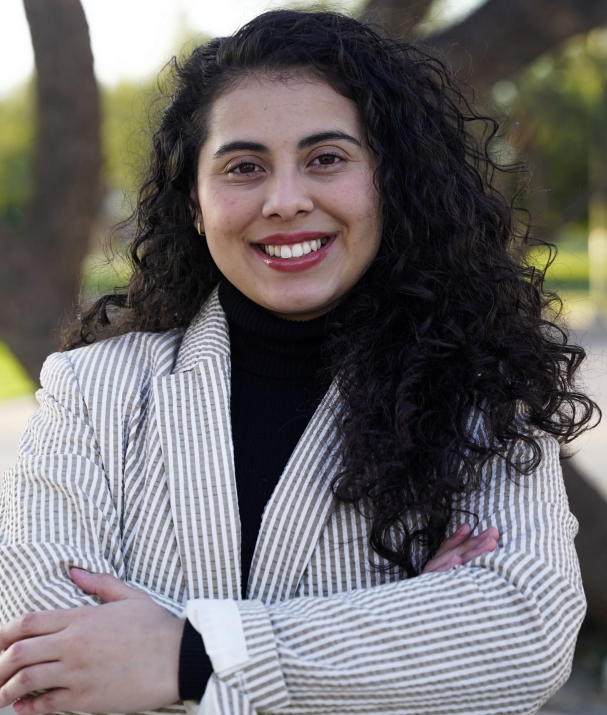
Guadalupe Romero, Undergraduate, Psychology
I’m currently in my last semester at California State University, San Bernardino where I’m majoring in Biological Psychology. After I obtain my bachelors degree, I will be applying to Ph. D. programs in translational neuroscience. My goal is to conduct research in neurodegenerative disorders ( Alzheimer’s disease, Huntington disease ). Learning more about treatments for patients who have a neurodegenerative disorder and how the research I’m doing can be applied to develop into clinical applications and novel therapies is why I’m deciding to go into the field of translational neuroscience. I want my research to make an impact in people's lives. I’ve taken many different behavioral neuroscience classes where I have learned about different disorders and how they affect one's quality of life. Certain disorders affect memory, motor movement, and how people feel on an everyday basis. These disorders completely change one's life and make simple everyday tasks very difficult. My goal is to find new treatments for these disorders and help people live better lives with their disorders. My career goal is to continue to work in research and work for a government agency ( Centers for Disease and Control, or National Health Institution).
My research experience began with the Undergraduate Research Training Initiative for Student Enhancement (U-RISE) program. Through this program, I began working with Dr. Jason Reimer’s cognitive psychology laboratory. I started working in this lab in September of 2021. Working in this lab has helped become familiar with conducting research in a laboratory setting. I have worked on a total of four projects in the lab. The first project is titled “Modes of Cognitive Control”. In this study we are using the Tobii eye tracker to investigate if eye movements predict the use of reactive or proactive modes of control during the AX- Continuous Performance Task Romero, Guadalupe - #3466 3 of 22 (AX-CPT). The second study I am working and leading is titled “Inhibitory Control”. This is an online study that my lab is collaborating with University of California Riverside and University of Irvine. This online study is examining the relationship between different types of cognitive inhibition tasks. The third study I worked on was my honors thesis project that is titled “ The Relationship Between Modes of Cognitive Control and the Behavioral Inhibition System”. The purpose of this is to test the direct relationship between AX-CPT and BIS scores. We wanted to see if people who are more proactive also have a higher BIS score. I’m currently assisting a graduate student in my lab on her master's thesis project, titled “Aces Effects on Hot & Cool Executive Function”. We are investigating if repeated stress affects brain development. All of these projects have helped me in different ways to better understand the underlying mechanisms of neurodegenerative disorders.
Academic achievements I have obtained throughout my undergraduate journey are, I have been on the dean’s list since my freshman year. I was accepted into the psychology honors program my junior year. I won an outstanding undergraduate service award for the college of social and behavioral sciences, for the work I did as the student representative of the college. I worked closely with the deans of the college to ensure we are providing students in the college with the best resources to help them succeed. I won the ASI elections for the 2023 school year and I’m currently serving my second term as the college representative of the social and behavioral science department. Last spring I applied to a summer internship at Dartmouth college, an Ivy league school in New Hampshire, where I was accepted and worked in an autism and perception lab. In this lab I learned how to code, I worked with virtual reality technology, I was trained to use FMRI. During the course of the summer I worked on a study titled “Examining conversational Alignment in Adults with and without Autism” Where I looked at the Romero, Guadalupe - #3466 4 of 22 conversation patterns of adults with and without autism. I presented this research in a poster presentation at the Leadership Alliance National Symposium in Connecticut. I have also presented my work at the Annual Biomedical Research conference for Minoritized Scienisist ( ABRCMS). I presented in a symposium at Dartmouth college, the 2022 meeting of the minds, and the 2023 csusb student research conference. All of these experiences have sharpened my skills and prepared me for future presentations. I am extremely passionate about the research work I do. Being a part of research has helped me have a fulfilling undergraduate journey. I thank CSUSB for all the opportunities this campus has provided me. Thank you for your consideration, and I look forward to hearing your decision.